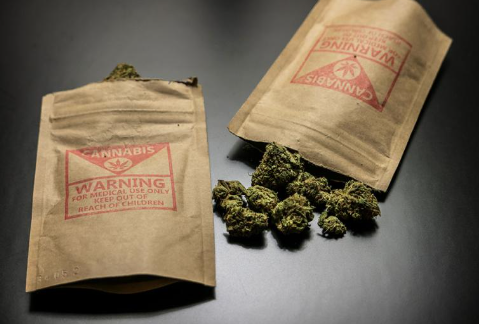Insiders say the pay-to-play problem is well known.
Trips to the Bahamas. Rolex watches. Expensive cars. Exclusive concert tickets. Or literally just bags of cash.
Those are all ways used by independent marijuana brands in Arizona to buy their way onto dispensary shelves, according to several industry insiders, responding to the news that multistate operator Trulieve Cannabis Corp. – which runs 21 dispensaries in the state – filed a lawsuit against former employees alleging a “commercial bribery” scheme.
“Those are all the same concepts. It’s all just paying for shelf space in one way or another,” said Demitri Downing, CEO of the Arizona Marijuana Industry Trade Association (MITA AZ).
There are 169 recreational and 137 dual medical-recreational dispensaries in Arizona, according to a spokesperson the for Arizona Department of Health Services. Downing estimates that eight large companies run about half of them. Those include Trulieve, Curaleaf Holdings, Mint Cannabis, JARS Cannabis, and Nirvana Cannabis Co.
Because those larger players have their own in-house brands, there’s no incentive to provide shelf space to small, independent brands, Downing explained.
Rather, the only reason that an estimated 300 or more independent brands even exist in Arizona is because they’re allowed to sublease space at facilities owned and run by the same vertically integrated companies that also own many of the retail shops, Downing said.
The larger companies also trade their own products in exchange for shelf space at dispensaries run by their peers, creating yet another systemic hurdle that small brands can’t compete with without providing an extra incentive, Downing said.
That’s created a perfect storm that breeds corruption of the type outlined in the Trulieve case, said Arizona cannabis attorney Jon Udell, who has assisted independent brands entering the market for years.
“We’ve known for a long time this has been happening. And it’s causing really serious problems for a lot of (the independent brands),” Udell said.
Subleases can cost $350,000-$600,000, Udell estimated. But purchasing one of the state-issued vertically integrated permits on the secondary market typically runs $8 million-$9 million for a social equity license or $15 million-$20 million for a dual medical-recreational license.
Endless train of failures
The situation has created a vicious cycle within the small brand ecosystem, Downing said, where startups enter with a new product and a bit of venture capital, fail to get onto shelves at enough dispensaries, and exit the industry entirely – and then someone else takes their place.
It’s become an endless train of failed executions, he said.
“This is the kind of thing that should cause people to reflect on what kind of industry we’re developing, what kind of market structure we’re developing, who has access to it, how and why,” Downing added. “This is the kind of thing that could lead to direct-from-manufacturer-to-consumer laws eventually.”
One independent Arizona brand operator who requested anonymity so as not to damage business relations said the market is “ripe for bad practices,” and that the pay-to-play trend began about three years ago, primarily in connection with MSO-run dispensaries.
“When you have a monopoly, you can do whatever you want,” the operator said.
The systemic flaw is one that even Trulieve itself pointed out in its recent racketeering lawsuit, which asserts that two of the company’s own purchasing managers demanded and won kickbacks from brands desperate to get onto store shelves.
The brand operator who requested anonymity said that Downing’s description of a cycle of failing brands being replaced by new hopefuls is “100%” accurate.
“I have seen so many people try to get into the market in the last year and a half, maybe two years, and … I’ve seen almost zero success, unless they were operating in a different state already,” he said.
Necessary change
It’s not as though the entire market is corrupt, the operator clarified, and singled out Curaleaf as one MSO that has maintained a decent reputation among independent Arizona brands. And many of the smaller independent retailers are also open to carrying indie brands based on their own merits, instead of a pay-to-play system.
But overall, the Arizona market is a tough nut to crack, in large part because of the limited licensing structure, which is something that Udell is trying to change.
Udell wants more license types issued by the state and more retailers. But gathering enough support in the state legislature for a monumental overhaul would be tough, as would another state ballot initiative.
“It is a bit of an open question,” Udell said. “But in general, that’s what needs to be done: We need to lower barriers to entry by issuing more licenses, and different kinds of licenses, not just vertically integrated licenses.”
